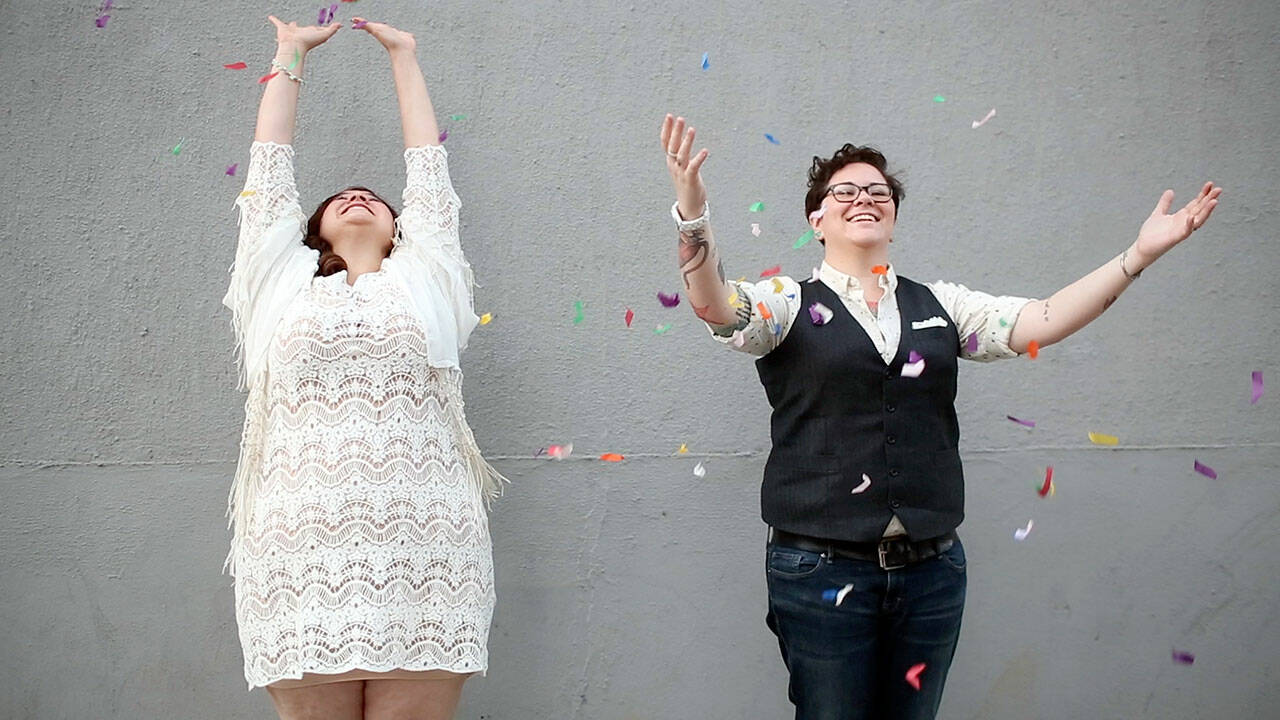PORT TOWNSEND — “The S Word” could be for suicide, or silence or shame.
It also can be for survivor, said Lisa Klein, director of the so-titled film, available for streaming at no cost starting today.
The documentary about suicide prevention — and about how to dispel the taboo of talking about it — is this month’s Port Townsend Film Festival Pic, offered online through Sunday, with the link provided at PTFilmFest.com.
Janette Force, the festival’s executive director, also invites everyone to see a short film about local teenagers and mental health at thebenjiproject.org under the Resources link.
The Benji Project, a nonprofit organization named for Benji Kenworthy, who took his own life in 2015, provides workshops and activities for local youngsters and families.
“The S Word” starts out with Dese’rae L. Stage, a photojournalist who interviews people who, like her, have attempted suicide. Each of their stories, naturally, is unique. What they have in common is that they not only survived, they went on to build a life rich in joy and meaning, said Cynthia Osterman, founder of The Benji Project.
The movie is “so good,” she said, adding it’s a film for mature audiences, and one that delves into the importance of talking about the issue of suicide.
It affects us all, Osterman said. She also believes each of us has a role to play in suicide prevention.
“As a community, as a society, we need to be taking steps toward being more open and showing our vulnerability,” she said.
“That’s where real connections happen.”
Along with streaming “The S Word,” viewers can watch Force’s interview with Osterman and Klein, which is packaged with the film.
For Klein, one of the most powerful things one can do for someone having suicidal thoughts is to let them talk.
“The biggest thing,” she said, “is the simplicity of listening, really listening to somebody,” instead of suggesting, say, a healthier diet or exercise regimen.
When Klein set out to make “The S Word,” she knew it couldn’t be a dirge, or “a sad PowerPoint.” The director sought to find the three-dimensionality in each person in the film, to expand them into their full humanity.
“Humor is key,” she said, adding the people in the movie provided that in many instances.
We’re all living in this mixed-up world, Klein said; “we can really learn a lot from each other.”
The pandemic has clarified “how much we have to show up for each other,” Osterman added.
She doesn’t mean being there just for our immediate families.
If you know someone who struggling, see if you can extend yourself a little. Check in with them. Ask, “how are you doing?” and then let the person talk if they want to.
Keep an eye out for the youngster who may not have someone to confide in, Osterman said. Show interest in their life and what they like to do after school.
“Kids have an acute awareness of authenticity,” she noted, and “they don’t want you to swoop in with ‘How are you, really.’”
It’s awkward at first, but trust can be earned in increments, Osterman said.
And the relationship can be enriching on both sides.
“A lot of young people don’t have connections, and older people deal with loneliness and stress. We have opportunities to learn and be there for each other.”
The Benji Project and other community groups are “part of trying to create a community that’s caring and honest,” she said.
________
Jefferson County senior reporter Diane Urbani de la Paz can be reached at 360-417-3509 or durbanidelapaz@peninsuladailynews.com.

